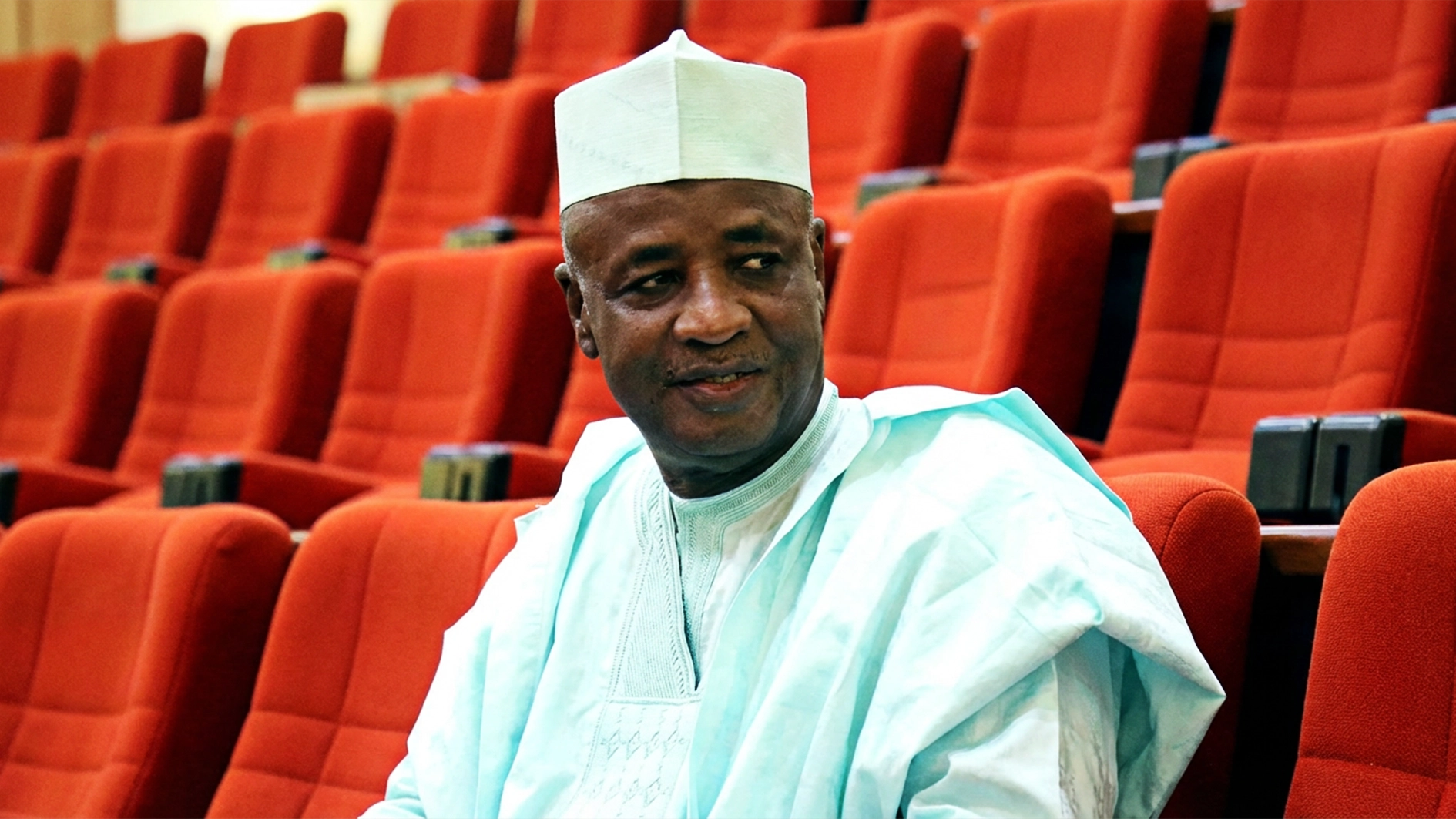
Abubakar Atiku Bagudu’s leadership in relation to Nigeria’s economy did not start with his ministerial appointment. Born on December 26, 1961, in Gwandu, Kebbi State, Bagudu built a career rooted in economics, governance, and financial management.
For perspective, Bagudu had built a distinguished career in the private sector, learning the ropes and honing the skills that will enable him to make the type of impact he is now making in the Nigerian economic landscape. Before joining politics, he worked as an economist at the Central Bank of Nigeria (CBN) and held leadership positions at CitiBank and FSB International Bank Limited.
His financial expertise saw him serve at the World Bank/IFC in 1993 before becoming Special Assistant to the Minister of Finance, Dr. Kalu Idika Kalu. He entered Nigeria’s political scene as a Senator for Kebbi Central in 2009 and was re-elected in 2011. His governorship tenure from 2015 to 2023 set the foundation for executing the economic strategies he now advances at the national level.
As Governor of Kebbi State, Bagudu redefined governance by integrating data-driven policies, transparency, and strategic fiscal planning principles into the economy. His administration prioritized agriculture, industrialization, and social investment, positioning the state as a national economic model.
Kebbi became Nigeria’s rice powerhouse under Bagudu’s leadership. Through the Anchor Borrowers’ Programme (ABP), which he facilitated with the CBN, rice production surged from one million metric tons to over two million. Over 70,000 farmers benefited from access to finance, mechanized farming, and improved seedlings. This program played a pivotal role in achieving national self-sufficiency in rice production and reducing dependency on foreign imports. The project also led to the creation of thousands of indirect jobs, from processors to transporters and marketers.
Bagudu also diversified into wheat, cassava, and livestock farming, creating thousands of agribusiness jobs. His support for agricultural extension services modernized farming techniques, reduced post-harvest losses and increased exports. In recognition of his achievements, he was appointed Chairman of the Presidential Task Force on Rice and Wheat Production and Vice Chairman of the National Food Security Council.
Bagudu’s administration invested heavily in rural electrification, road networks, and industrial expansion. The Kebbi State Rural Electrification Project boosted local industries, while tax incentives and free land allocation attracted business investments. Kebbi was named the most prosperous state in Northwest Nigeria by the National Bureau of Statistics (NBS) due to its economic growth.
During his time as Governor of Kebbi State, bagudu attracted Foreign Direct Investment into Kebbi State with GB Foods, the company behind brands like Gino and Bama, opening an N20 billion tomato processing factory in Kebbi State, Nigeria, aiming to reduce reliance on tomato paste imports and boost local production. The factory is engaging over 5,000 smallholder Kebbi State farmers as out-growers to grow fresh tomatoes in the coming season.
He oversaw the construction of over 500km of rural roads, linking farming communities to major markets, thereby enhancing trade and reducing transport costs. His government also expanded access to clean water and sanitation, particularly in rural areas where water scarcity was a pressing issue.
On the social investment front, his social investment programs empowered over 40,000 women and youth entrepreneurs with zero-interest loans and business training under the Kebbi State Social Investment Program (K-SIP). The initiative provided funding for artisans, traders, and small businesses, fostering financial inclusion for marginalized groups.
Recognizing the importance of education, Bagudu expanded vocational training programs, ensuring that Kebbi youth had access to technical skills, digital literacy, and agricultural training. Over 15,000 youths were trained in these specialized fields, reducing unemployment and improving self-reliance.
On the healthcare front, through his dear wife, Dr Zainab Shinkafi Bagudu, he attracted Fortune 500 multinationals like Johnson and Johnson, Roche and Procter and Gamble into the state to strengthen the healthcare infrastructure of the state in the areas of oncology While Kebbi State government partnered with Johnson & Johnson, notably Johnson & Johnson Innovative Medicine, to strengthen healthcare initiatives, including the fight against HIV and mental health, and to improve oncology care. The collaboration aimed to bolster the fight against HIV, improve mental health services, and enhance oncology care in Kebbi State, resulting in outstanding results in the lives of Kebbi State indigenes.
On the other hand, Roche, a pharmaceutical company, partnered with the Kebbi State government to improve healthcare, particularly addressing breast cancer, with initiatives including training for healthcare professionals and providing end-to-end care for disadvantaged patients. In contrast, Procter & Gamble (P&G) partnered with the Kebbi State government to support infant mortality reduction efforts, particularly in child hygiene, and to empower and train women in Kebbi State.
All of these initiatives ensured that Kebbi State indigenes could benefit immensely from the expertise of these multinationals in the state.
Under his leadership, the Kebbi State Government and the Kebbi State Cancer Care Fund, also known as the Kebbi Indigent Cancer Fund, established a special program to support cancer screening and treatment for indigent patients, with the Kebbi State Cancer Treatment Centre in Kalgo serving as a key facility. This was in line with the Federal Government’s National Cancer Control Plan, its well-laid-out framework enumerating strategies to improve cancer care. All of these were spearheaded by Dr Zainab Shinkafi Bagudu, who is also the President-Elect of the Union for International Cancer Control.
Bagudu’s Kebbi success provided a framework for his national role. As Minister of Budget and Economic Planning, he has driven policies emphasizing fiscal discipline, transparency, and economic expansion.
Bagudu’s leadership moves beyond traditional budgeting, integrating economic foresight, digital innovation, and strategic planning. His tenure as Kebbi Governor demonstrated that targeted agricultural investments, infrastructure development, and social welfare programs can drive sustainable economic growth. Now, as Minister of Budget and Economic Planning, he is applying these principles on a national scale, ensuring that policies lead to fundamental economic transformation.
His policies are setting Nigeria on a path toward fiscal stability, economic diversification, and inclusive growth. By leveraging his Kebbi success, he is reshaping Nigeria’s economic landscape for long-term prosperity. His commitment to responsible governance, economic resilience, and transparency ensures that his impact will outlive his tenure, positioning Nigeria as a stronger economic force in Africa and beyond.
• Seriki, an analyst with SellingPoint.ng writes from Abuja






